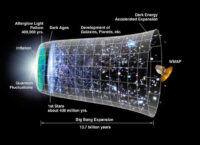In the end, the skein of civilization turned out to be thinner and less substantial than most anyone had expected. Collapse of modern society took only a matter of weeks, not months. Once the electricity stopped the whole of industrial and mechanized society came crashing to a halt. Assumptions about emergency plans dissolved into the reality of human chaos as those with their hands on the levers of the system abandoned their posts and joined the rest of the masses in a panic of self-preservation.
Water stopped flowing, gasoline pumps sat idle, communication networks failed, and food distribution came to a screeching halt. Almost overnight chaos descended, first in the largest cities, and then progressively outwards into all reaches of society. A desperate population stormed markets and shops of all types, grabbing anything which might provide sustenance or protection. Like other sectors of government, law enforcement disappeared. Deprived of transportation, mechanisms of order lost their instrumentality. In the end, will to survive replaced command and duty as one-by-one police officers abandoned any pretense of organization and sought refuge for themselves and their families.
Of course, the idea of refuge was an illusion. Money itself useless, the shift to digital banking had insured the disappearance of an organized economy. Bank and stock accounts ceased to exist in the silence of dead circuitry. Wealth instantly evaporated, all records of it inaccessible as backup generators at data centers failed for lack of fuel. There was nobody left at their desks to do anything about it, anyway.
The electrical grid and everything connected to it died a quick death, but what followed was anything but quiet. When it came to nuclear power plants, the end was explosive. Emergency shut-down protocols automatically kicked-in, but panicked staff were long gone. Once the generators stopped, the coolant systems for pumps that kept water flowing and reactor cores stable failed and one-by-one the radioactive fuel cores melted down. The failures variously sent exploded plumes of deadly steam into the atmosphere or physical explosions contaminated the landscape for hundreds of miles. Those plants which did not fail remained vulnerable, their pools of spent fuel rods beginning to boil as cool water ceased to circulate in them. Over time, they would boil off their water, melt and descend into the earth until they hit an aquifer, at which time they too exploded in a volcanic geyser of radioactivity.
It didn’t matter much. By that time billions of beings had perished from lack of water. Ironically, it was the poorest of the earth who lasted longest, those already used to scraping life from the scarcest of resources. It was the poorest as well who had retained any sense of communal identity, and were best able to pull together in groups to provide for each other. Jungle dwellers and inhabitants of garbage dumps were among the few with survival skills commensurate to the task of returning to pre-industrial life. It turned out either talents born of isolation or the ability of small groups to share limited resources became the refuge denied those who had in all ways become little more than part of the industrial machine itself.
The strength of industrial society – dependence upon advanced electrified technology – was revealed as its weakness. In the end it was only those who had retained a physical relationship with the earth itself that survived.






Texas